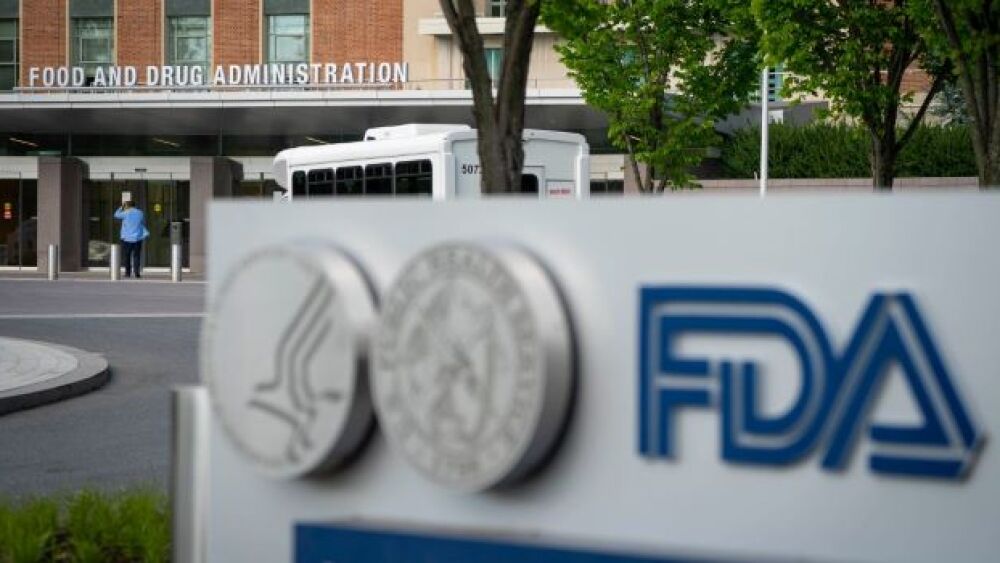In an earnings call Wednesday, bluebird bio revealed it is unlikely to meet its first-quarter goal to submit a Biologics License Application for sickle cell disease (SCD) gene therapy lovo-cel.
Photo shows FDA sign in front of building/Sarah Silbiger/Getty Images
Massachusetts-based bluebird bio is unlikely to meet its first-quarter goal to submit a Biologics License Application for sickle cell disease (SCD) gene therapy lovotibeglogene autotemcel (lovo-cel), the company revealed Wednesday.
The announcement was made during bluebird’s fourth-quarter and full-year earnings call, during which CEO Andrew Obenshain said lovo-cel’s BLA filing was complete and is ready for submission. However, bluebird has yet to receive feedback regarding the FDA’s concerns over chemistry, manufacturing and controls (CMC).
“Speaking plainly, we will likely miss the Q1 2023 submission goal,” Obenshain said.
The company’s stocks were down 24% at market close on Wednesday.
In December 2022, bluebird sent a data package to the FDA containing drug product comparability analyses, Obenshain said during the investor call. The regulator wrote back in February with questions and concerns regarding these comparability data, asking bluebird to address them before filing lovo-cel’s BLA.
The company did so in the first week of March and provided the regulator with its full CMC module, along with additional information. The FDA has yet to respond.
While there is no definite timeline for the FDA’s reply, Obenshain said the Agency has conveyed its commitment to a timely turnaround. The company expects to hear from the FDA in a couple of weeks and will work to submit lovo-cel’s BLA soon afterward, he said.
During the earnings call, bluebird also touted the strong commercial launches of its gene therapies — Zynteglo (betibeglogene autotemcel) for beta-thalassemia, and Skysona (elivaldogene autotemcel) for cerebral adrenoleukodystrophy. Five patients have already started cell collection for Zynteglo while two have done so for Skysona.
Both gene therapies were approved by the FDA in 2022: Zynteglo in August and Skysona in September.
Rough Regulatory Road
Wednesday’s delay is the latest roadblock for bluebird in its quest to get lovo-cel approved.
In December 2021, the regulator placed the investigational gene therapy under partial clinical hold after an adolescent patient developed persistent, non-transfusion-dependent anemia following lovo-cel treatment.
The clinical hold did not affect lovo-cel patient populations who were 18 and above. The company also continued enrolment for its HGB-205, HGB-201 and LTF-307 studies.
Lovo-cel was released from its clinical hold in December 2022. The company’s investigations revealed that the patient in question, along with another similar case in the adult cohort of the lovo-cel trial, bore two specific deletions in the α-globin gene. This genotype is now an exclusion criterion for other lovo-cel studies.
bluebird isn’t the only company facing challenges with SCD. In February, the FDA placed a full clinical hold on Fulcrum Therapeutics’ FTX-6058, prompting the company to suspend dosing. The same month, Graphite Bio decided to abandon its SCD program completely, cutting its investigational asset nula-cel and off 50% of its staff.
Novartis also walked back on its ex vivo SCD program with Intellia Therapeutics in February.






